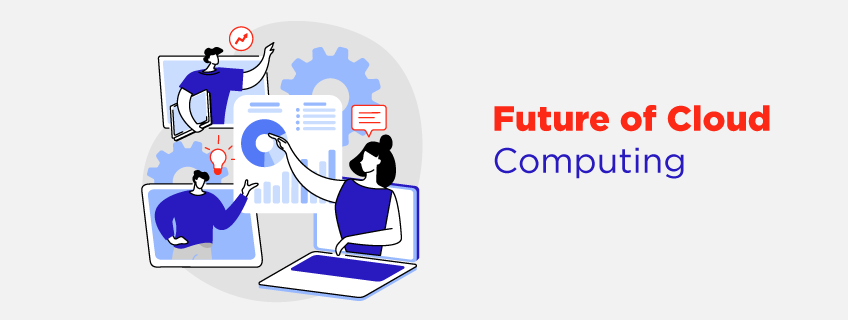
The Future of Cloud Computing: Advancements and Innovations
The Future of Cloud Computing: Advancements and Innovations
The future of cloud computing promises to be dynamic, with continual advancements and innovations shaping the landscape. Here are several key trends and potential developments that may influence the future of cloud computing:
- Edge Computing Integration:
- Edge computing is gaining prominence, bringing processing capabilities closer to the data source. The integration of edge computing with cloud services will enable faster data processing, reduced latency, and improved real-time decision-making.
- Serverless Computing Evolution:
- Serverless computing, which abstracts the infrastructure layer from developers, is expected to evolve further. This model allows developers to focus solely on writing code without managing underlying servers, leading to increased efficiency and cost savings.
- Quantum Computing Impact:
- The advent of quantum computing may revolutionize cloud services. Quantum computers have the potential to solve complex problems exponentially faster than classical computers, offering new possibilities for data encryption, optimization, and simulations.
- AI and Machine Learning Integration:
- AI and machine learning will become more deeply integrated into cloud services, offering advanced analytics, automation, and improved decision-making capabilities. Cloud providers will likely offer more AI-driven services to cater to diverse industry needs.
- 5G and Cloud Synergy:
- The widespread adoption of 5G networks will complement cloud computing by providing faster and more reliable connectivity. This synergy will enable new use cases, such as augmented reality (AR), virtual reality (VR), and enhanced IoT applications.
- Multi-Cloud and Hybrid Cloud Strategies:
- Organizations will continue to adopt multi-cloud and hybrid cloud strategies to leverage the strengths of different cloud providers and maintain flexibility. This approach mitigates vendor lock-in and optimizes performance, cost, and data residency.
- Enhanced Security Measures:
- As cyber threats evolve, cloud providers will invest in advanced security measures, including zero-trust architectures, encryption, and improved identity management. Continuous monitoring and threat intelligence will be crucial components of future cloud security.
- Blockchain Integration:
- Blockchain technology may find increased integration in cloud services, providing enhanced transparency, security, and traceability for transactions and data. This could be particularly beneficial for industries such as finance, supply chain, and healthcare.
- Containerization and Microservices Adoption:
- Containerization and microservices architectures will continue to gain popularity. Containers offer portability, scalability, and consistency, making them well-suited for cloud environments. This trend is likely to be supported by tools like Kubernetes for container orchestration.
- Sustainability and Green Computing:
- Cloud providers will increasingly focus on sustainability and green computing practices. Efforts to reduce energy consumption, optimize resource usage, and adopt eco-friendly data center designs will become more prevalent in the industry.
- Digital Twins and Simulation:
- The use of digital twins—virtual replicas of physical systems or processes—will expand, especially in industries like manufacturing, healthcare, and infrastructure. Cloud platforms will provide the computational power needed for simulation, analysis, and optimization.
- Robust Cloud-Native Ecosystems:
- The development of cloud-native technologies and ecosystems will accelerate. This includes tools, frameworks, and platforms designed specifically for the cloud, fostering innovation and streamlining application development and deployment.
- Augmented Cloud Services:
-
- Augmented cloud services, which combine traditional cloud capabilities with AI-driven insights, will become more prevalent. These services will offer proactive recommendations, automation, and a more intelligent interaction with cloud resources.
As technology continues to advance, the future of cloud computing will likely be shaped by a combination of these trends, driven by the need for greater efficiency, scalability, security, and innovation across various industries. Organizations will need to stay agile and adaptive to harness the full potential of emerging cloud technologies.





